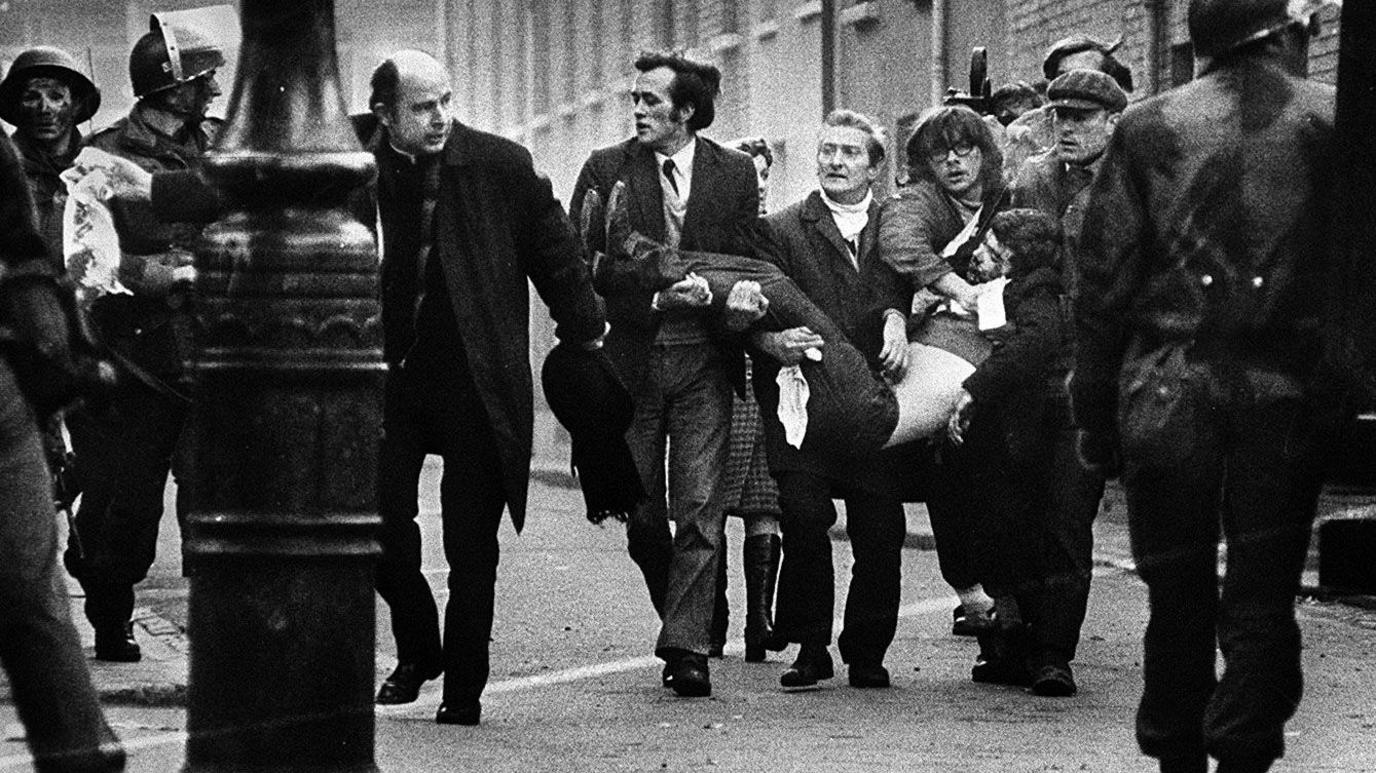Soldier F prosecution not 'vexatious', says Benn
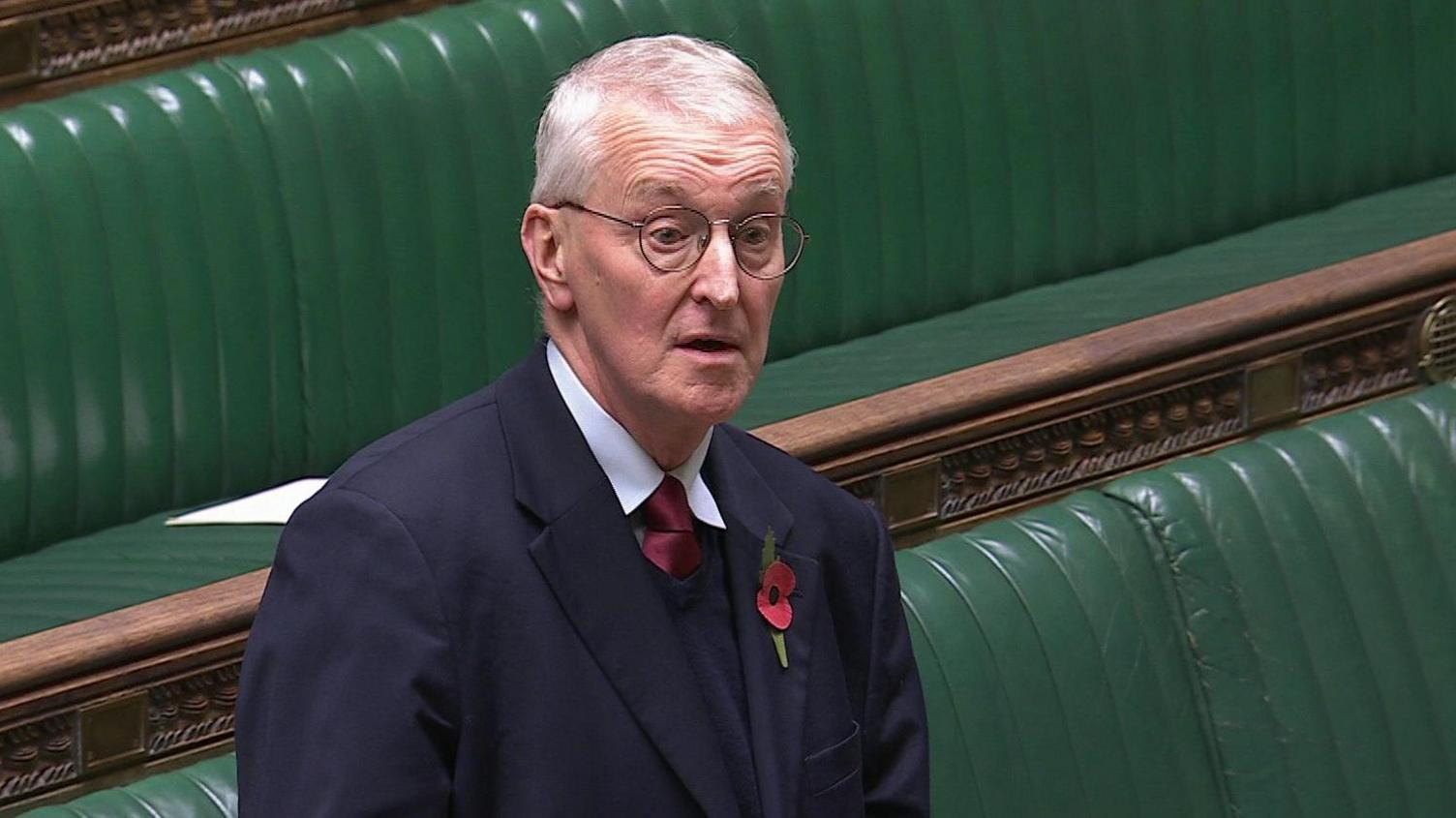
Secretary of State Hilary Benn said there are "no vexatious prosecutions" while answering questions about the decision to prosecute Soldier F
- Published
The Secretary of State Hilary Benn has rejected a Democratic Unionist Party (DUP) claim that the prosecution of Soldier F had been a "disgrace".
He was speaking in the House of Commons, where MPs have been commenting on the veteran's acquittal on two charges or murder and five charges of attempted murder on Bloody Sunday in Londonderry in 1972.
DUP MP Carla Lockhart said the outcome "exposes the disgrace of vexatious prosecutions".
However, Benn said he disagreed with her viewpoint and replied: "There are no vexatious prosecutions."
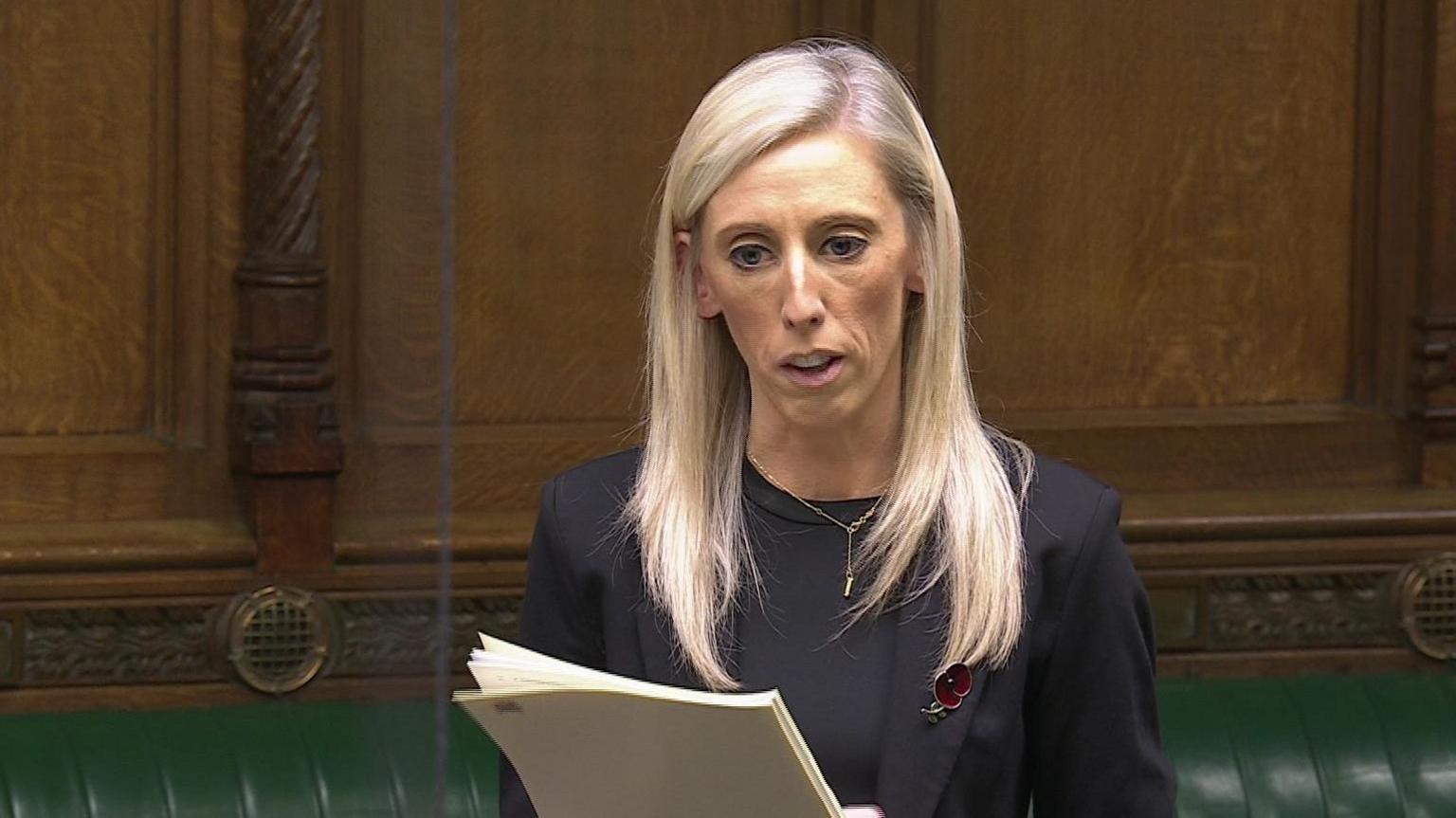
DUP MP Carla Lockhart said the outcome "exposes the disgrace of vexatious prosecutions"
"If the honourable member argues that a prosecution decision is vexatious, then she is criticising the independent prosecuting authority," he said.
"We should be extremely careful about trying to undermine an independent judicial system."
Benn said he did not want to be drawn "on the particulars" of the proceedings.
He acknowledged the verdict had been "a difficult day" for the families of the 13 people shot dead on Bloody Sunday, adding: "I'm sure the sympathies of the whole house remain with them."
'As a lawyer, I am absolutely astounded'
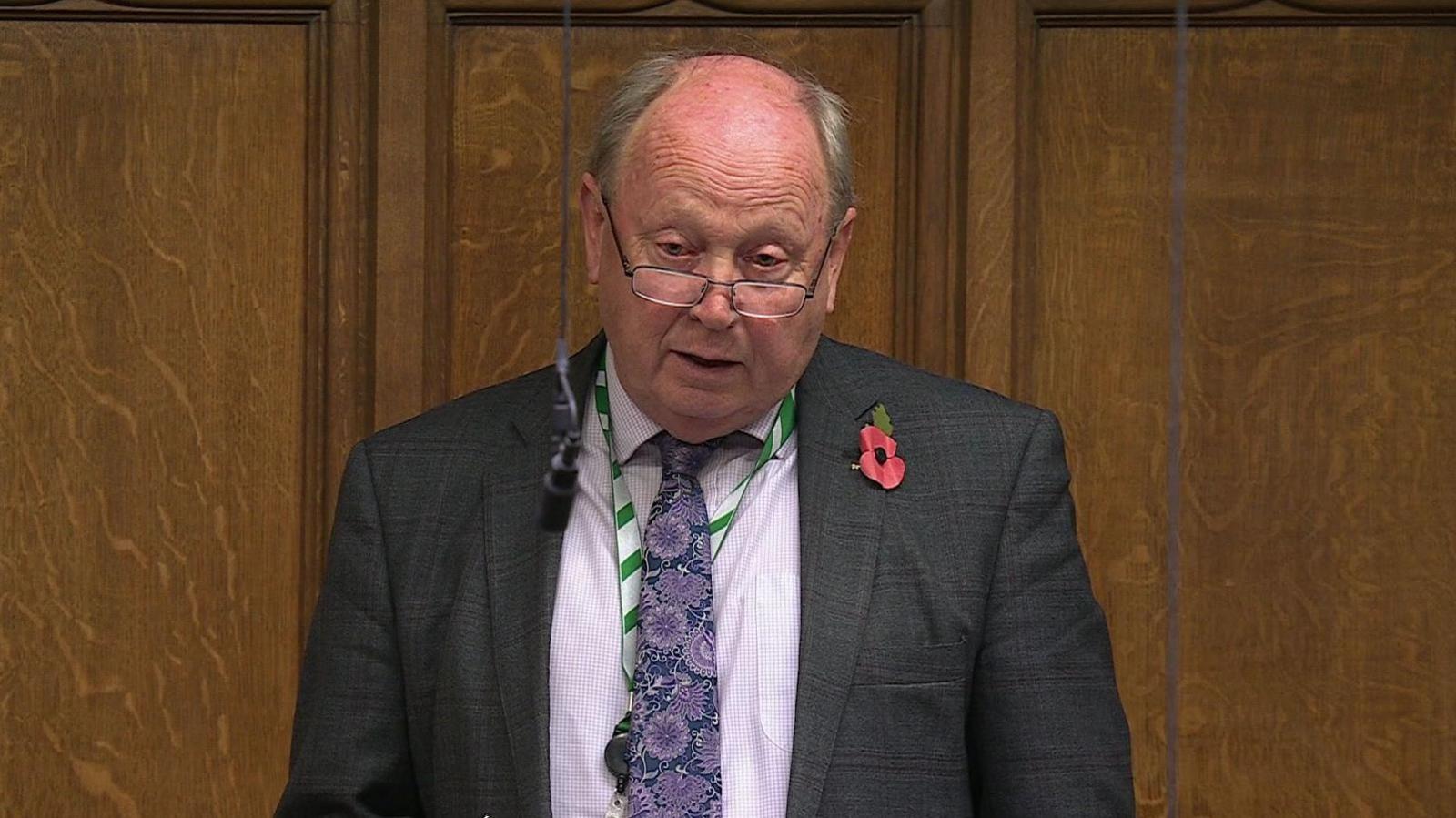
TUV MP Jim Allister said it was "patently obvious" that the evidence against Soldier F was "never going to stack up"
Traditional Unionist Voice (TUV) leader Jim Allister claimed Soldier F had been subjected to "years of turmoil and torture".
He said it was "patently obvious" that the evidence against the veteran "was never going to stack up".
Allister added: "As a lawyer, I am absolutely astounded that this prosecution got as far as it did.
"It relied on the word of two individuals, both of whom had been depicted as liars and perjurers, and neither of whom could be cross-examined.
"Is that not the very essence of what is vexatious?"
He added those who "campaigned for this persecution" should accept the verdict and allow Soldier F "to live out his years in peace".
Benn replied: "It is a fundamental principle of our legal system that we accept the verdict of the courts.
"The honourable gentlemen is a distinguished lawyer and he expresses his views.
"The only point I am making is that decision is made by independent prosecutors and not by any of us."
A number of Conservative backbenchers criticised the government's new legacy proposals, as they partly involve scrapping a conditional immunity clause which would have been open to military veterans and former paramilitaries.
The clause has been declared unlawful by the Northern Ireland courts.
'Goes to the heart' of what Conservatives tried to do
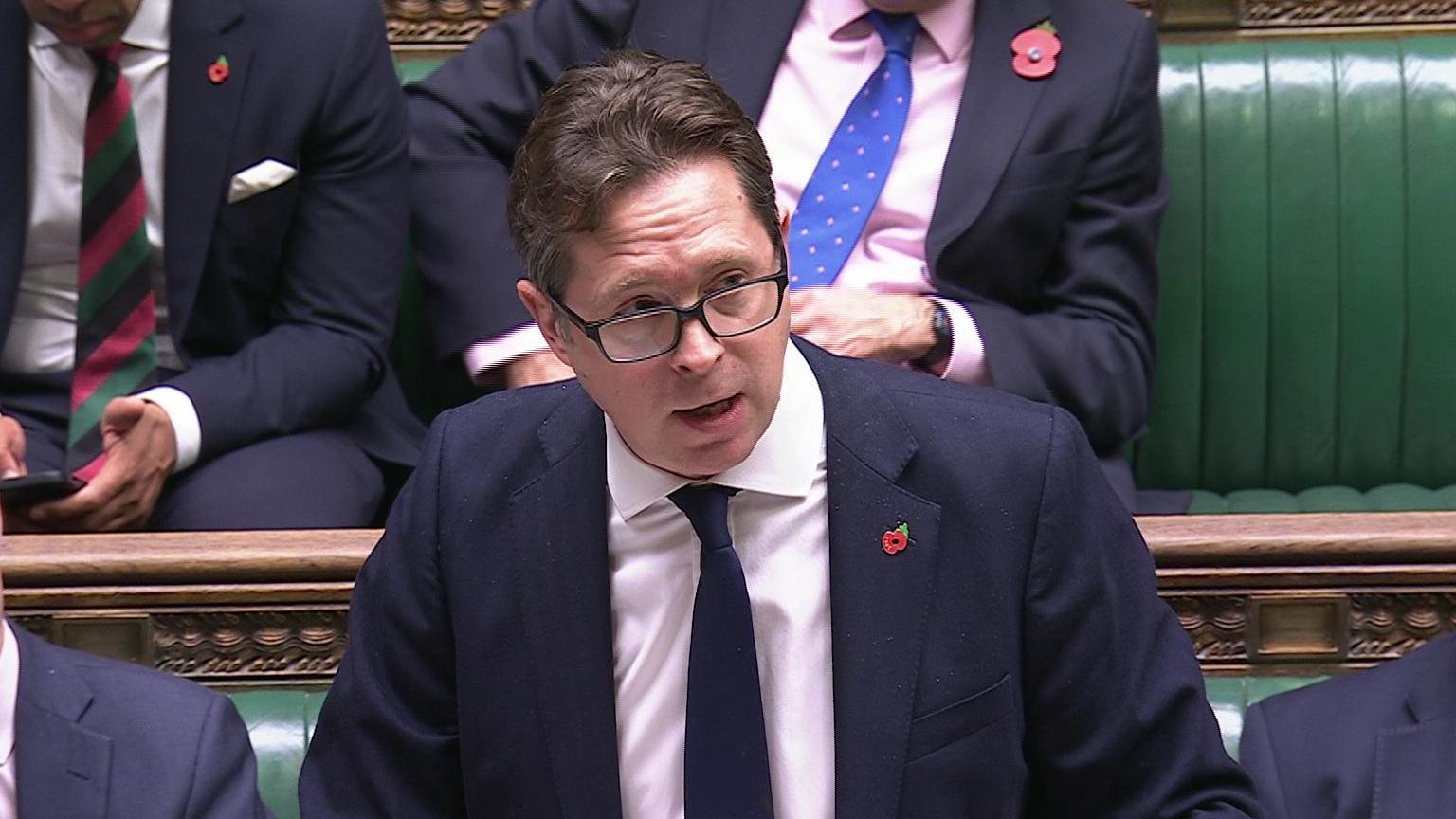
Shadow Northern Ireland secretary Alex Burghart said with the passage of time, it "becomes vanishingly difficult to obtain convictions"
Judge Patrick Lynch at Belfast Crown Court said last month that the "evidence presented by the Crown falls well short" of being "convincing and manifestly reliable" enough to secure a conviction.
Shadow Northern Ireland secretary Alex Burghart said Judge Lynch's finding "goes to the heart" of what the Conservatives tried to do when they passed the Northern Ireland Troubles (Legacy and Reconciliation) Act 2023.
"As time goes by, it becomes vanishingly difficult to obtain convictions," he told MPs.
"The 1998 agreement was 27 years ago. The ceasefire's 31 years ago.
"And this, of course, has implications for the Government's Troubles Bill, which will reopen many such cases, cases where there is no prospect of resolution but only of ongoing legal process, with almost no possibility of bringing terrorists to court, but which, ultimately, leave open the likelihood of ever more vexatious complaints against our veterans."
Mr Benn replied: "He is absolutely right when he says that with the passage of time - I think the phrase he used was - 'it is vanishingly difficult to obtain convictions'.
"And most of the families, not all, but most of the families that I have met who lost loved ones recognise that fact."
Benn added that the offer of immunity within the Legacy Act was the reason it was rejected by victims and survivors groups in Northern Ireland, opposed by all of the political parties and was found by the courts to be incompatible with human rights obligations.
Who is Soldier F?
Soldier F is the only military veteran who has been prosecuted over the shootings.
The five charges of attempted murder related to two teenagers at the time 16-year-old Joe Mahon and 17-year-old Michael Quinn as well as Joseph Friel, who was 20, and Patrick O'Donnell, 41, and an unknown person.
The case was heard by a judge sitting without a jury at Belfast Crown Court and lasted five weeks.
To protect his identity, Soldier F was screened from public view and his name not disclosed, as a result of a court order.
The decision to charge Soldier F was taken by the Public Prosecution Service (PPS) in 2019.
He was one of 18 former soldiers reported to the PPS as a result of a police investigation, which followed the public inquiry into Bloody Sunday conducted by Lord Saville.
But he was the only one charged.
Two years later, the PPS dropped the case after the collapse of the trial of two other veterans who had been accused of a 1972 murder in Belfast.
But the prosecution resumed in 2022 after a legal challenge.
- Published23 October
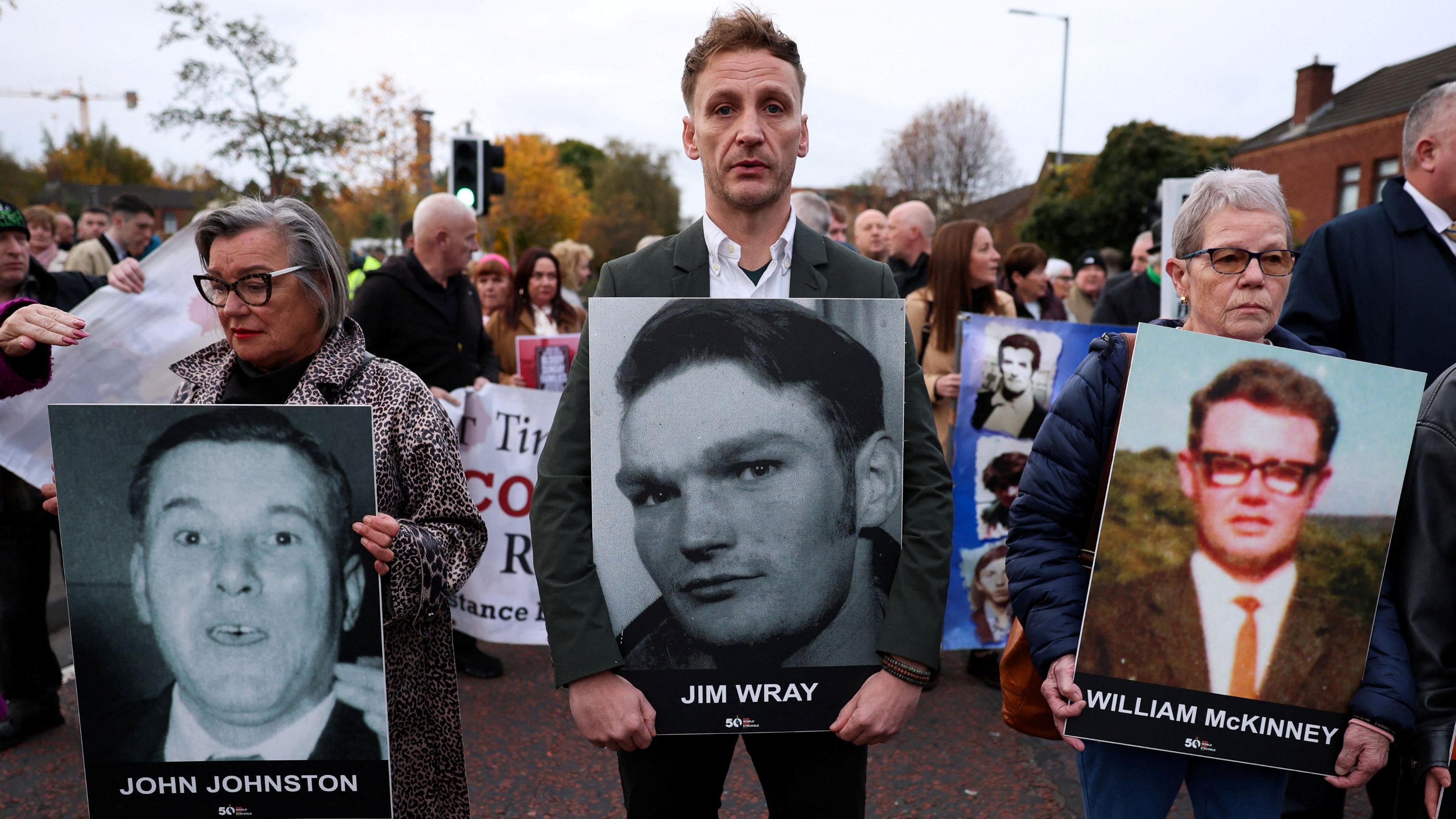
- Published23 October
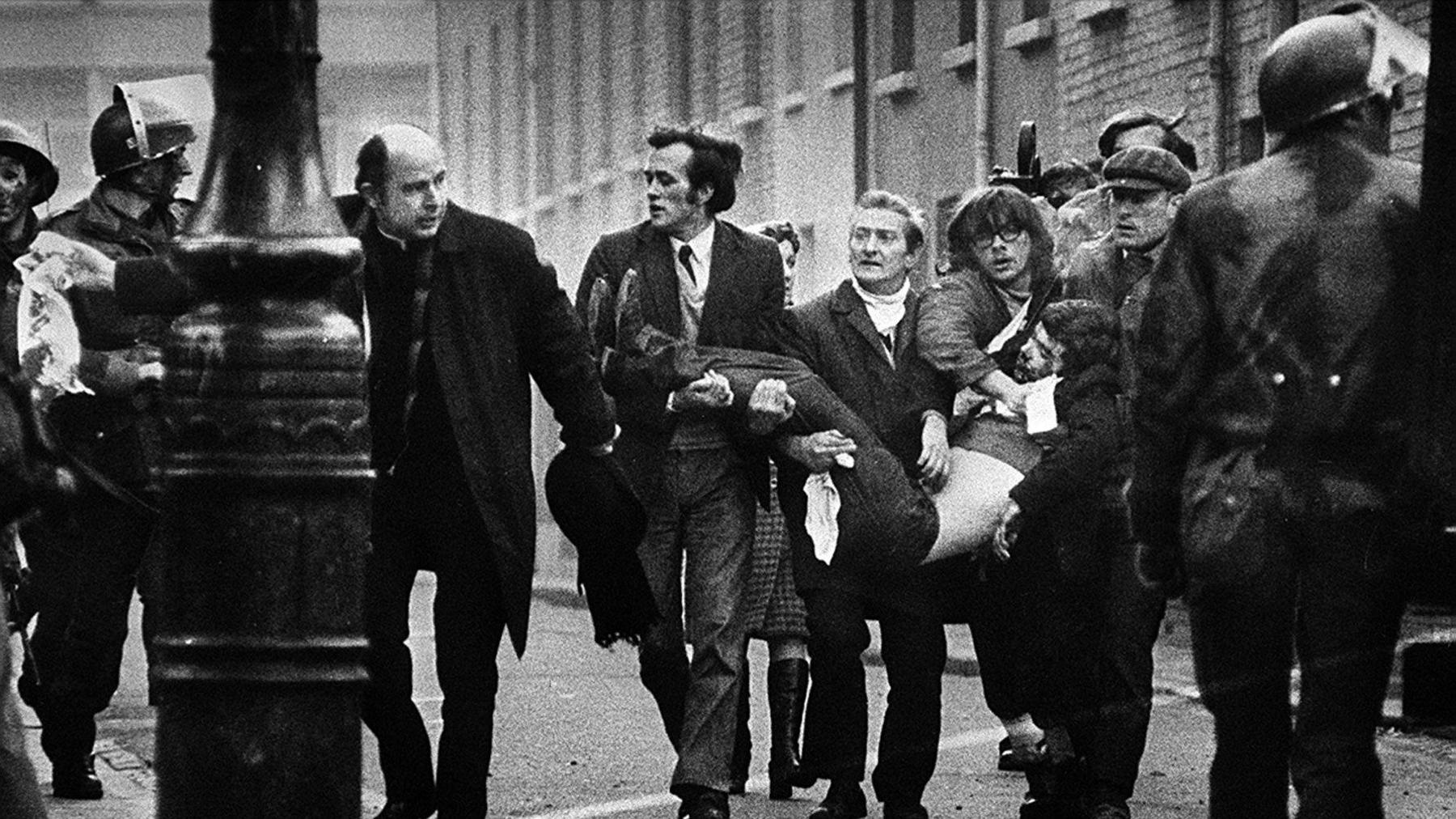
- Published24 October
